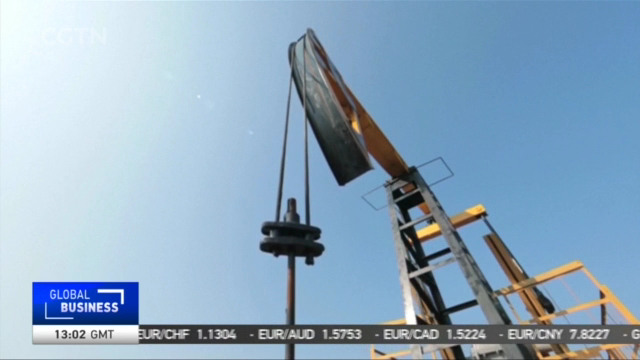
21:54, 06-Dec-2018
OPEC+ Meeting: Cartel trying to find solution to slumping oil prices
Updated
21:44, 09-Dec-2018
02:41

As OPEC and non-OPEC oil producers meet to discuss supply, our Jacob Greaves reports that some Middle-east countries appear more exposed than others, should oil prices fall further.
$50 a barrel, that's a figure suddenly being given more serious thought. OPEC is trying to find consensus on how and IF they will try to prop up the slumping oil price. But regardless it's raised the question of which Gulf hydrocarbon heavyweights can survive on slimmed down energy revenues.
JACOB GREAVES DUBAI "The lower oil price might prompt memories of the 2014 fall. That shook oil and gas dependent economies across the region from Saudi Arabia and Kuwait to here in the UAE, since then there's been many attempts to better prepare balance sheets for any such eventuality the question is how successful they've been."
Analysis from research firm Capital Economics suggests some have better managed their exposure than others
JASON TUVEY, SR. EMERGING MARKETS ECONOMIST CAPITAL ECONOMICS "Some countries have quite big fiscal buffers, the likes of Kuwait, UAE, Qatar. So even with oil at 40-50 they would be able to whither this quite well and even loosen policy a bit if they felt their economy needed a bit of support. Saudi Arabia is one we were a bit more concerned about. They need oil to be around $80-90 a barrel to run a balanced budget. With oil at 40-50 the budgets more like 10% of GDP, so the scope for fiscal loosening there is almost none existent and if anything fiscal austerity might come back onto the agenda."
In that context it's perhaps little surprise Saudi Arabia is increasingly becoming a cheerleader of OPEC cuts. But there's other members of the Gulf Cooperation Council already facing economic headwinds, likely to be more buffeted by a prolonged price slump.
EHSAN KHOMAN MUFG BANK "We think the weak links in the GCC remain Oman and Bahrain. Indeed their fiscal breaking of prices are closer to the $100 dollar mark. For Bahrain it's closer; for Bahrain, it's $106 for next year; for Oman, it's just hovering less than $90. So where oil prices are trading and with credit agencies already precipitously downgrading these sovereigns, our concerns going into next year is that a lot more fiscal consolidation needs to happen in order to stem any further pressures on their rating profile."
In this energy dominated landscape few can ignore a falling oil price, but it may not burn every Gulf producer as it once did.
JG, CGTN, Dubai.

SITEMAP
Copyright © 2018 CGTN. Beijing ICP prepared NO.16065310-3
Copyright © 2018 CGTN. Beijing ICP prepared NO.16065310-3